Here at Scuba Cat Diving we have a long history of working to preserve our reefs for the future generations. We cannot do this alone, we need your help!
It is important that all divers have a good understanding of their roles in Reef Conservation and how their diving practices can affect the reef eco system.
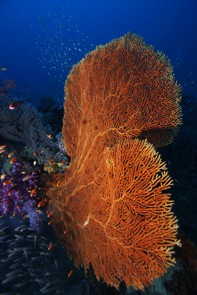
Learn to Scuba Dive at a responsible dive centre, ensure you will be taught to the highest standards, remember the Cheapest price is not always the best service for you or for the environment!
Here at Scuba Cat we are a 5 * CDC which is the top rating any dive centre can get from and the course quality reflects this. The maximum group size is 1 instructor to 4 candidates, the instructors all work for Scuba Cat Diving on a permanent basis, all our equipment is maintained and serviced by our full time engineer and we operate our own boats with maximum number of divers on them MV Scuba Fun 20, Our own Liveaboard MV Scuba Adventure, 12 and MV Scuba Sport is only 10. we do not believe many other companies can offer you this quality. We recently received many awards from , Project Aware and Reef Check for our environmental work, including the first Dive Centre in Thailand to be presented the prestigious Green Star Award.
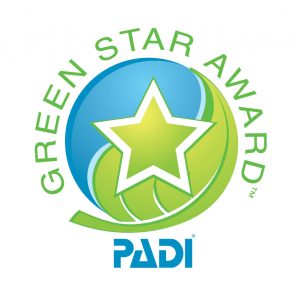
The quality of our courses means you learn in a calm, controlled manner and also means there is much less impact on the environment whilst learning. Our Instructors give particular emphasis to teaching good buoyancy skills underwater. If you are not in control of your buoyancy you can injure yourself and our precious reef systems. A responsible diver in control of their buoyancy will not interfere with the Ocean life by damaging Corals or breaking sea fans. Practice your buoyancy over sand away from the reef, after you have mastered this you can conformably swim over the reefs.
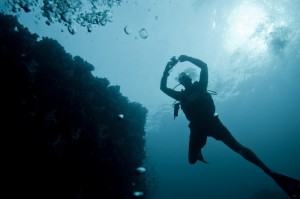
Once you are a Certified Diver dont become complacent about your buoyancy. Every dive is different, some sites will be more challenging than others. Always dive within your limits, you have been trained to that limit for a reason both for your own safety and the safety of others.
We strive to ‘make a difference’ to the environment with our diving. With a maximum ratio of 4 divers to 1 guide, means that we can look after everyone and make sure they do no damage, dramatically reducing the impact of our divers on the reef. Ultimately as Certified Divers you are responsible, the Open Water Course certifies you to dive to you limits to a maximum depth of 18m, with a buddy. The guide will do exactly that, guide you… was your training adequate for you to be responsible?
If the answer to this is no, dont worry. We have a whole range of courses to help you become more responsible divers. Why not look at your Advanced Open Water Course, completing 5 more dives under the supervision of a Instructor. This course will teach you new skills required for different diving environments, two core dives will teach you about safe Deep Diving practices and give you basic navigation skills. Included in your optional dives are great skills to help you become a responsible diver, Peak Performance Buoyancy, Aware Fish Identification and Underwater Naturalist to give you a few examples.

Also there is a whole range of Specialities to enhance these skills further. The more that you learn the more you will see and enjoy, this will also make you a safer diver, for yourself, others and the environment. You could also look at becoming a Reef Check Diver, learning how to monitor the reef.
Always make sure that your skills are up to date, if you haven’t dived for a period of time make sure you take a “refresher” course or a Scuba Review to bring your confidence back as a diver, do this for your safety, the safety of your buddy and the safety of the environment.
Ask our staff on board the boat to help you with your ideal diving weight. The weights you will need will vary on different dives. Are you used to diving in Fresh Water? What type of exposure suit are you wearing? What type of tank do you have? Our qualified staff are there to ensure your days diving is aas enjoyable as it can be. If you are over weighted your legs and feet will be dragging downwards. Did you know even if you are not touching the reef, kicking up sand can have a negative impact on the corals around you?
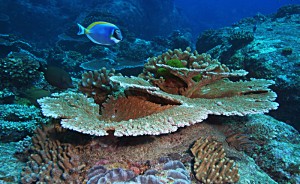
At Scuba Cat we have a no touching policy, remember the precious corals and Marine Life can be destroyed even by the gentlest touch. Many marine animals have developed a camouflage to help them survive along with a stinging defensive system, can you be sure that you know them all?
Please take photographs, this is a great way of sharing the underwater world with many friends and family. However it is easy to become distracted when trying to get that perfect shot and accidentally kick the corals with a fin tip or lie on the rock/corals to get nearer your subject, please dont, would you like it if a giant stood on your house? Why not get our Professional Videographer to make a memory of your day for you.
All our instructors are aware of the importance of protecting the reef and they remove rubbish from underwater, if they see any. This doubles the effect as customers see us taking care of the environment and follow suit and show a good example by removing anything underwater that should not be there. Once a month we hold an Underwater Clean up event in conjunction with Project Aware and there dive for debris initiative, why not join in with us?
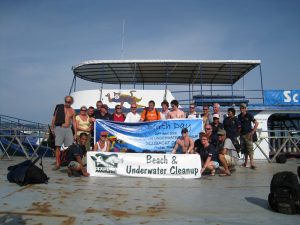
We want you to come and dive with us, enjoying the trip leaving us as a better informed, responsible, and environmentally aware diver.
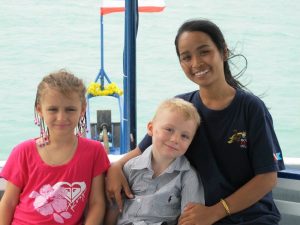






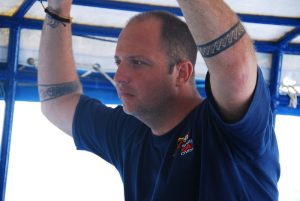

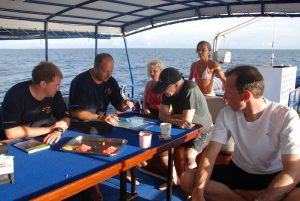
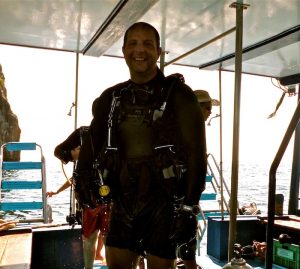
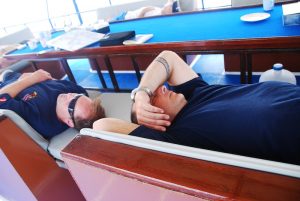

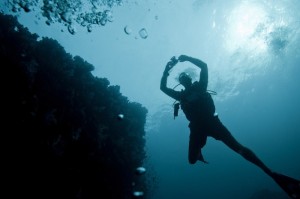


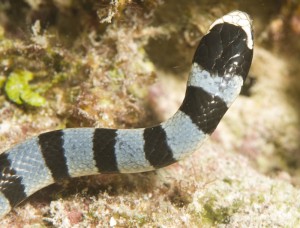
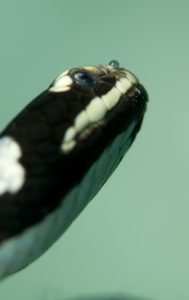
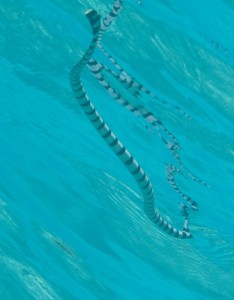





Scubacat Community